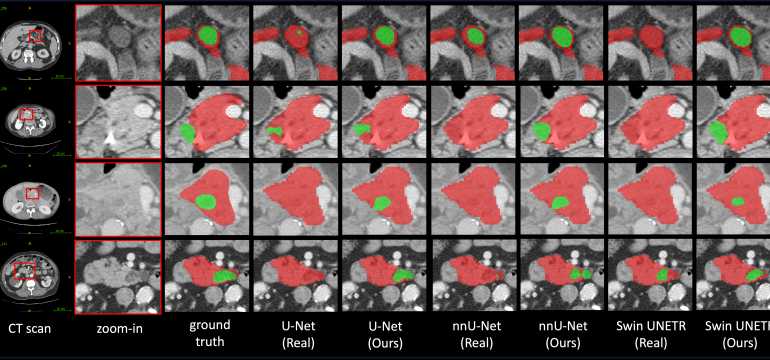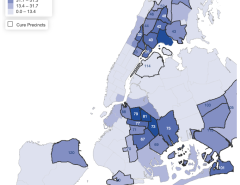Authors: Qi Chen, Xiaoxi Chen, Haorui Song, Zhiwei Xiong, Alan Yuille, Chen Wei, Zongwei Zhou
Published on: February 29, 2024
Impact Score: 8.0
Arxiv code: Arxiv:2402.19470
Summary
- What is new: The paper presents a novel approach to tumor synthesis that emphasizes the creation of visually realistic, generalizable synthetic tumors across multiple organs using generative AI models.
- Why this is important: The difficulty of training AI models for tumor detection and segmentation due to the lack of diverse, real tumor images across various organs.
- What the research proposes: Utilizing generative AI models, specifically Diffusion Models, to generate synthetic tumors that are realistic and generalizable to multiple organs, improving the training of AI models.
- Results: AI models trained on these synthetic tumors successfully detected and segmented real tumors in CT volumes, demonstrating generalizability across different patient demographics, imaging protocols, and healthcare facilities.
Technical Details
Technological frameworks used: nan
Models used: Diffusion Models
Data used: CT volumes of early-stage tumors across liver, pancreas, and kidneys
Potential Impact
Healthcare AI applications in tumor detection and segmentation, medical imaging companies, and AI-driven diagnostic tools
Want to implement this idea in a business?
We have generated a startup concept here: SynthTect.




Leave a Reply